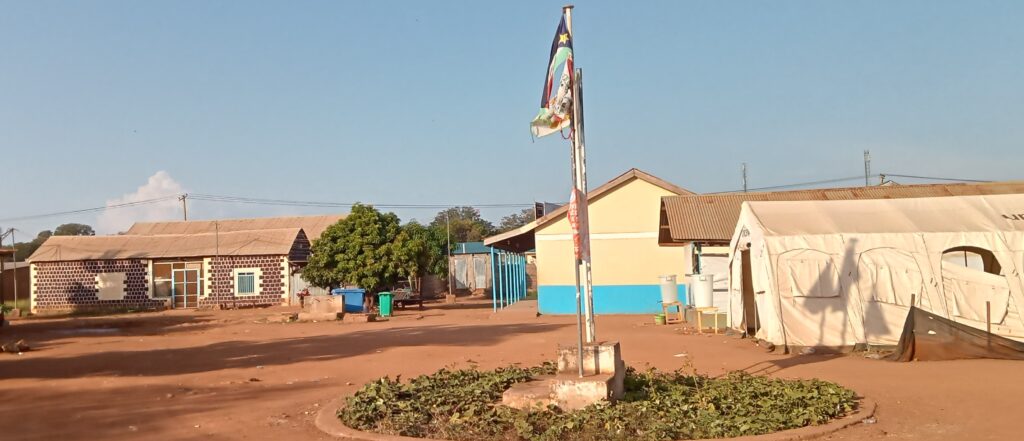The Internal Security Bureau of the National Security Service (NSS) briefly interrogated four medical specialists on Friday following peaceful protests at Aweil Civil Hospital in Northern Bahr el Ghazal State.
The specialists—Dr. Dut Pioth Akot (Surgeon), Dr. James Deng Lual (Gynecologist), Dr. Martin (Dentist), and Dr. Caesar Bika (Anesthetist)—were central figures in the protest, demanding unpaid incentive arrears for the months of August, September, October, and November.
Speaking to Radio Tamazuj on Monday, Dr. Pioth explained that they had been summoned to provide information about the protests. He confirmed they resumed their duties after receiving assurances from security officials that their demands would be addressed.
“The national security summoned us to learn more about the protest. After answering their questions, they understood that we had no other intention,” Pioth said.
The medical doctor added that they provided documentation related to their claims and were informed that authorities would follow up on the issue.
Dr. Pioth noted that since 2021, the state government has been paying $17,000 monthly in incentives for 300 health workers at Aweil Civil Hospital. However, delays in payments have increased following the appointment of new Governor Simon Uber Mawut, who succeeded ex-Governor Tong Akeen Ngor.
Gynecologist Dr. James Deng Lual stated that the health workers are waiting for Governor Mawut’s return from Juba to resolve the issue amicably. “We are still waiting for our payment. The governor is in Juba, and we want to see what he will do about this when he returns,” Lual said.
When contacted by Radio Tamazuj, the Northern Bahr el Ghazal State Minister of Health, Riiny Riiny Lual, expressed support for the protesting health workers, stating they should claim their rights while also prioritizing health services for vulnerable populations.
“I cannot consider their actions as protests because they have resumed work at Aweil Civil Hospital. The medical staff were simply demanding their rights, and there are established procedures for addressing these concerns,” Lual said.
Additionally, Garang Kuol Mabior, spokesperson for the Northern Bahr el Ghazal State Transitional Legislative Assembly, announced an upcoming parliamentary sitting to address the issues raised by the health workers.
“Next Wednesday, we have an urgent sitting where we will summon the state minister of health to discuss the challenges facing health workers,” Kuol said.
South Sudan has very poor health indicators, including limited access to health services. Government funding for health is low, at less than 2% of the national budget.




